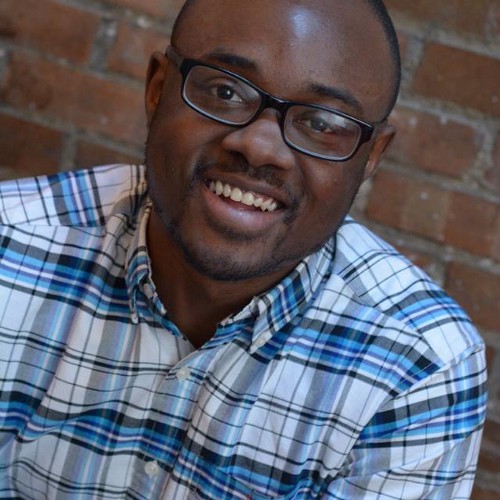Ayodeji is an author, writing coach, and digital marketing Director at MLT Group – A Minneapolis digital marketing agency offering SEO Services & Web Design
***
If you’ve read my work for awhile, you know I don’t subscribe to the flowery, rosy, overly positive version of self-help.
You know what I’m talking about.
It’s the type of personal development riddled with phrases like:
You must find your ultimate passion.
Find something you love and you’ll never have to work another day in your life.
The problem with focusing on what you’re passionate about is… it doesn’t work. It doesn’t work because it comes with a poor underlying assumption. The assumption is that your level of love dictates how dedicated you’ll be to the journey. You think that once you find that ultimate passion, things will fall into place, and you’ll do the work necessary to succeed.
This is backward.
In reality, you don’t find passion until you get good at something. When you develop competence in something you enjoy, you build more confidence to help you tackle larger challenges, and you continue to grow, which fuels more passion to repeat the process.
Then, one day, you look up and you’re successful. Every person you see at the top of their game followed the simple recipe I’m about to explain.
You can follow it, too. Just know that you’ll need to work at it for a while. It will work if you’re patient. It won’t if you aren’t. So you will be, right? Ok, good.
The Dead Simple Process to ‘Finding Your Passion’
First, let me say this — you’re probably making the process of figuring out what you should be doing with your life way too difficult.
You can’t sit in a room and contemplate your life until your passion magically appears. Just find something you feel you might enjoy doing and practice doing it.
You probably know what you’d enjoy doing because you’ve already done it in some shape or form. Think back to when you were in adolescence. What did you enjoy doing? What were you fascinated by? What did you want to learn because you wanted to learn it and not because it was force-fed to you?
I wrote poems when I was 12 years old. I loved vocabulary tests and the other kids always wanted to me to read out loud because I could do it faster than everyone else. I was always the first to open my mouth in class — either to ask a question or to crack jokes and ‘disrupt the learning environment.’
I was always a curious kid who loved words. Now I write and speak in public. Pretty simple.
Don’t overthink it.
Your childhood is a clue. The section of the bookstores you’d love to read every book in is a clue. The blogs you’ve read about someone doing something that makes you think “wow” that’d be cool. Is a clue.
In fact, I wrote a 5,000-word blog post about finding your strengths and talents. You will definitely have some insights if you read that.
Once you find something you want to try, start practicing.
Practice Makes Perfect
There’s something energizing about trying to master something.
The lack of purpose and meaning in today’s society, in my opinion, comes from a lack of deliberate practice.
Few people want to be excellent. Few want to put in the type of work required to have the passionate lifestyle, the alternative career, the purpose-filled life. We’d rather complain about our circumstances, our jobs, our lack of resources, our lack of talent, our lack of this and lack of that.
If you’re not where you want to be and don’t have this magical passion, you lack the real desire to learn and the desire to get good at something. That’s it.
Fortunately, you can change that.
How?
You experiment. I talk about that process in this blog post.
Just choose something to take on a trial run. That’s how I started writing. I had no plans of becoming a professional writer (whatever that means). I wrote one blog post and discovered I enjoyed it. Then I wrote a second, a third, a fourth, a 20th, a 50th, and now 500 plus posts.
After practicing for a while — I’d say a year — I started to believe writing could be more than a hobby for me. I started learning different skills like building an email list, outlining a book and writing it, copywriting, and more.
I’ve adopted the attitudes and habits of a ‘skill-collector.’
If you’re a skill-collector, you start to look at learning new tasks and facing new challenges as part of the process of becoming a multi-faceted person who’s the best at what they do.
I’ll never be the best writer in the world, but if I’m really good at a handful of things, I can be in the top five percent of that combination of skills.
If you develop your own talent stack, you’ll continue to discover more opportunities, which will increase your skills and make you even more passionate.
Remember, if you want to find passion, get good at something first.
Get Your FREE Copy of My Best-Selling Book
Click the link to download a free copy of my Amazon best-selling book here.
Along with your free book, you’ll receive a weekly Monday motivation email to jump start your week + access to exclusive content for subscribers only.
Originally published at medium.com

